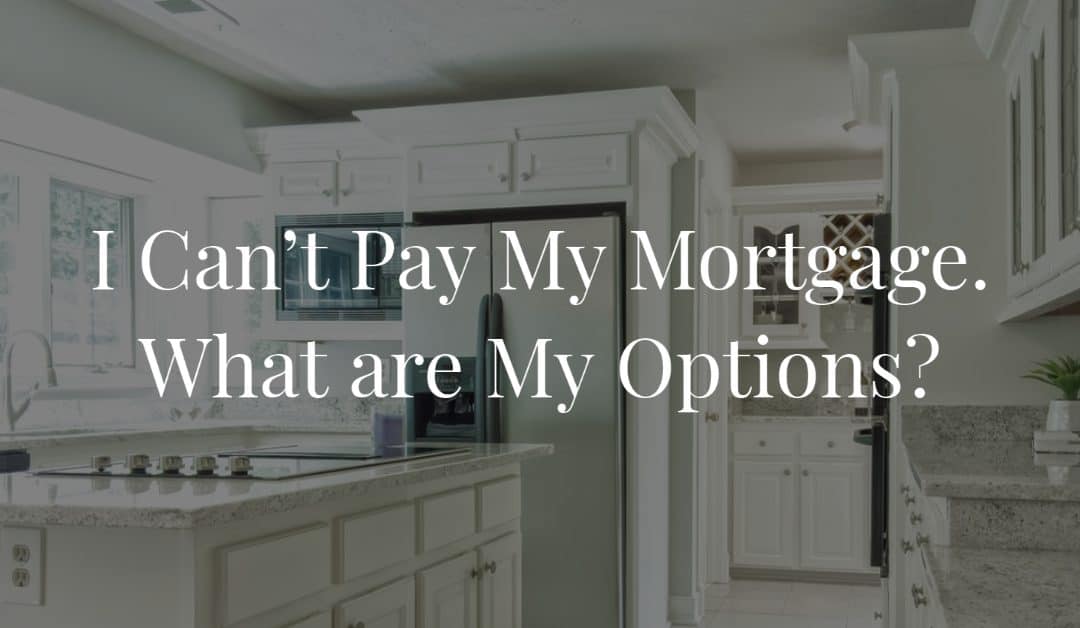If you are struggling to pay your mortgage during this pandemic, you are not alone. The nation’s overall delinquency rate was 7.3% in May 2020 — meaning that these homeowners were 30 or more days overdue. All states and all but two metros showed increases in their overall delinquency rates. This is the highest overall delinquency rate since August 2014, according to the latest CoreLogic Loan Performance Insights Report.
We may be headed for a housing mortgage crisis and if you are struggling, you need answers now. What options are available to you if you can’t pay your mortgage every month? What steps should you take now to prepare?
Let’s take a look at what programs and laws might keep you living in your home.
Don’t Wait to Find Solutions
The most important thing is to start looking at your options now. Don’t wait until this becomes a crisis for you and your family. Turn over every rock to find a way to keep your good credit and your home.
Government Programs
Under the Coronavirus Aid, Relief, and Economic Security (CARES) Act, if you have a government loan or Fannie Mae or Freddie Mac mortgage, your lender can’t foreclose on you until at least December 31, 2020.
Also, according to the CPFB, if you experience financial hardship due to the coronavirus pandemic, you have a right to request and obtain a forbearance for up to 180 days. You can also request another 180 days by contacting your lender. There are no additional fees, penalties or additional interest added to your account.
Negotiate Agreements with Private Lenders
Even if your housing loan is with a private lender, many lenders are choosing to reduce or suspend payments while you adjust to pandemic hardships. In general, they do not want to have to go through a foreclosure process with you anymore than you want to with them.
Lenders are open to negotiating the terms of your mortgage so it may just take a phone call and a request for some type of loan modification program.
-
Deferment
Putting off payments for a specified period of time hoping to be in a more financially stable position by the time your payments are due again. This basically pauses your loan and adds the missed payments to the end of the loan structure. Your loan will take longer to pay off and you will also pay interest on the months that you miss payments. The missed interest payments will accrue more interest so your overall payment for the life of the loan will increase.
-
Re Payment Plan
If you missed a few payments because you changed your situation, but now you are back to normal, a repayment plan could work for you. Basically, you agree with your bank that you will pay an agreed upon amount extra each month until you catch up.
-
Loan Modification Program
Work with your lender to negotiate a monthly payment amount that you can afford long term. You are then expected to pay back the payments you missed in the past on top of the more affordable amount you have negotiated.
-
Short Sale
If the amount you owe the bank is more than what your home is worth and you need to sell the home, you will owe money to the bank. A short sale is when you negotiate with your lender to agree on a lower amount to offer the house for sale. Your credit will take a hit if you choose to do this because you are “settling” a debt instead of paying it in full. Still, the credit loss is less than if you were to go bankrupt.
-
Cash for Keys (Deed in Lieu of Foreclosure)
If you find that you can’t make payments and have no hope of making them in the future but must sell your home, you can negotiate with your lender to accept less than the whole amount of the loan as payment. Usually, in this scenario, the bank will pay you $2000-$3000 to vacate the premises and leave the deed with them. You don’t have to sell the house or make any more payments. You just relocate. This situation is also a “settling” of a debt which causes your credit to drop. You will also need to pay taxes on the money you receive from the bank.
-
Forbearance
If your financial hardship is temporary, your lender may be willing to reduce or even suspend your mortgage payments for a period of time until you can resume making your regular payment. There may be additional fees, additional interest and penalty fees added to your account, so read the fine print carefully.
Refinance
If you have good credit, you could work with the same lender or a new lender to refinance your loan. Interest rates are low now and if you have equity in your home, you can use it by refinancing. Also, if you have a high monthly payment because you have a 15 year loan, you could refinance now and get a 30 year loan with lower monthly payments.
No matter what route you take to work out the struggle you are going through, it is important to remember that negotiating with your lender is key. Lenders are often agreeable to different ways of settling or restructuring your debt, especially with the pandemic situation.
Find Help
Many ways of restructuring or settling debt can have consequences such as lower credit scores or larger loans with fees and penalties attached. Consulting a knowledgeable real estate attorney who knows the laws and understands the fine print can make all the difference in your negotiations with a lender.
If you are in need of assistance and are unsure what to do, contact us at Jarrett Law Firm for help from an experienced attorney who is able to negotiate on your behalf. Lenders are often unscrupulous and having an attorney on your side will save you money and time and help you make the best decision for your unique situation.

